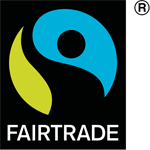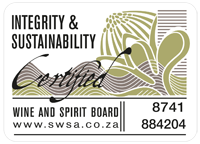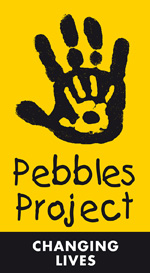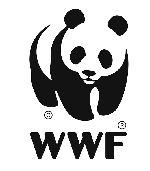/ Stakeholders /
Brought to you by

This year’s theme, ‘Sustainability 360’, ties into the overarching focus of the wider South African wine industry and the aim is to roll this out by impressing the importance of three pillars: Place, People and Prosperity. To ensure a better future for people, our planet, and our industry, in the wine industry we need to focus on sustainability. It's part of SA’s public policies and it's at the heart of Wine of South Africa.
The following organisations have direct links to the South African wine industry and actively promote one or more of our pillars. They are exhibiting in the Hillebrand Gori Stakeholder area and we encourage visitors to engage with their representatives to learn more about what they do and how one can get involved.
Confronting Climate Change
The Confronting Climate Change (CCC) initiative run by BlueNorth enables South African growers and service providers to measure their carbon footprint, identify ‘carbon hotspots’, develop creative solutions to reduce CO2 emissions and manage the perceptions of buyers and policy makers in order to secure the long-term viability of the industry. A carbon footprint label recognises the 'Carbon Heroes' of the wine and fruit industry who meticulously calculate their carbon footprint.

Fairtrade
Fairtrade is an ethical certification and its main aim is to promote equality and sustainability in the farming sector. Using the Fairtrade logo on a bottle of wine makes it instantly recognisable as being ethically and sustainably produced. By purchasing Fairtrade wines, consumers are contributing directly towards the social development of rural communities.

Integrated Production of Wine
The Integrated Production of Wine (IPW) scheme was introduced in 1998. Producers farm according to independently audited IPW guidelines which aim to prevent further loss of habitat. These guidelines are constantly improved and independent auditors audit the farms and cellars. If the farms pass the audit, they can use the sustainability seal.

Pinotage Youth Development Academy
The Pinotage Youth Development Academy (PYDA) is a year-long work readiness programme for students looking to make a positive change in their lives. Their two holistic training programmes focus on locally prominent industries: Wine and Tourism and the Fruit Sector. Earning an industry-endorsed qualification, their students learn relevant technical and personal development skills needed for employment in these industries.

SA Wine Industry Transformation Unit
The SA Wine Industry Transformation Unit (SAWITU) is a non-profit company that was incorporated in 2016 by its founding members, the National Agricultural Marketing Council (NAMC), Vinpro and SA Liquor Brand Owners Association (SALBA), with a fully dedicated operational division established in early 2019. SAWITU's objective is to ensure that it builds businesses and relationships towards a sustainable transformation trajectory. Under the auspices of SAWITU, The Wine Arc at the Nietvoorbij Cellar Complex is a first-of-its-kind brand home for black-owned enterprises.

Stronger Together
Stronger Together’s programme in South Africa is delivered in partnership with the Wine and Agricultural Ethical Trading Association (WIETA) and the Sustainability Initiative of South Africa (SIZA) and is supported by prominent industry leaders across the supply chain including global and national retailers and exporters and importers. The programme was established in May 2017 to support South African agri-businesses to address the risk of forced labour within their businesses and supply chains.

The Anna Foundation
The Anna Foundation was started in July 2005 by Anna Brom who was volunteering as a remedial teacher at a disadvantaged farm and township school in Mpumalanga, South Africa. The primary objective of the organisation is to address the educational and social needs of rural children and offer them lifelong learning in order to build positive self-worth and self-respect. They reach this objective by means of their 3 R’s Programme: Reading, Running and Right-ing.

The Pebbles Project
The main emphasis of the Pebbles Project is education. Their aim is to enrich the lives of disadvantaged children and families in the agricultural communities of the Western Cape. They focus on the entire life of the child and the challenging circumstances in which they live in order to make a significant and lasting difference. Since their inception in 2004, they have impacted the lives of children and their families by providing support and intervention in five key areas: Education, Health, Nutrition, Community and Protection.

WIETA
Formed in 2002, the Wine Industry Ethical Trade Association (WIETA) is a unique multi-stakeholder, non-profit, voluntary organisation that actively promotes ethical trade in the wine industry value chain through training, technical assessment and audits to assess members’ compliance with its code of good practice. WIETA drives a pro-active, world-class and sustainable ethical trade programme and continues to participate in international best practice by engaging global structures. Over 77% of the industry’s vineyard hectarage and 72% of total tonnage is certified ethical. Those that achieve accreditation are entitled to display the Fair Labour Certification seal.

Winetech
Winetech is an independent South African wine industry body that was originally conceptualised in 1996 and formally registered as a non-profit association in 1998. Winetech receives and manages the research statutory levy from the South African wine industry. It has four core functions: Research and Development, Knowledge Transfer, Innovation, and Learning and Development.

World Wildlife Fund Conservation Champions
WWF-SA’s pioneering Conservation Champion are dedicated to the conservation of the Cape Floral Kingdom’s unique biodiversity, which is home to over 9,600 plant species, 70% of which occur nowhere else on earth. The 55 Conservation Champions collectively own 45,200ha, of which 24,300ha are conserved.